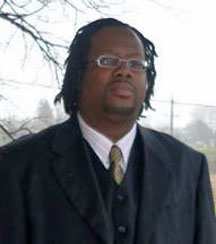Selwyn Pieters and Brian Noble have filed a notice of motion for leave to appeal after a
Divisional Court ruling found
the pair was not discriminated against during a confrontation with the Peel Law Association four years ago.

Pieters and Noble were awarded $2,000 each in 2010 after the Human Rights Tribunal of Ontario found the Peel Law Association and association administrator, Melissa Firth, discriminated against the pair by asking them to provide identification in the association’s lawyers’ lounge at the Brampton, Ont. courthouse.
The law association sought judicial review of the tribunal’s ruling in Jan. 2011 and last month the Divisional Court ruled in favour of the association, ordering costs of $20,000. Writing in
Peel Law Association v. Pieters last month, Justice Sandra Chapnik found the tribunal erred in “unreasonably determining” a case of prima facie discrimination had been established and unfairly placed the onus on Firth to refute the alleged discrimination.
“The undisputed evidence was that Ms. Firth’s duties included asking for identification to confirm the admissibility of persons in the lounge and library. Her position at the hearing was that she acted on this occasion in the context of those duties,” wrote Chapnik. “By improperly reversing the burden of proof, the Tribunal placed her in the difficult position of trying to prove a negative, namely, that her conduct in the performance of her routine duties was not motivated by race and colour. With respect, the Tribunal erred in doing so.”
Pieters and Noble argue in their
leave to appeal motion that the Divisional Court erred in granting an application for judicial review, failed to show necessary deference to the tribunal, and failed to recognize the appropriate standard of review was reasonableness.
The two lawyers also argue the Divisional Court erred in finding the tribunal reversed the onus of proof of discrimination, erred in determining a human rights applicant must prove there was an intention or motivation to discriminate, and erred in reinstating the prima facie test for discrimination, while also failing to apply applicable case law.
“The Divisional Court erred in law in granting the application for judicial review, quashing the decision of the Tribunal, dismissing the application to the Tribunal, and awarding costs in the face of these errors,” the motion states. “The issues in this case, which involve the appropriate standard of review, the appropriate evidentiary standard to be applied to cases of discrimination, and the appropriate legal test for finding discrimination, involve questions of public interest and importance. These matters will impact the development of jurisprudence in human rights and administrative law in Ontario.”
According to court documents, Firth had approached Pieters, Noble, and articling student Paul Waldron in May 2008 inside the association’s lounge, asking them for identification. The lounge is only open to lawyers, and Firth routinely asked lounge members for identification. Pieters, Noble, and Waldron were not robed at the time, but were each wearing business suits.
Pieters told Firth asking the group for identification was akin to racial discrimination, and felt the group was singled out for identification from a small group of other lounge members based on their race.
Firth later told her supervisors of the confrontation and was encouraged to post signs in the association’s lounge and library informing all users identification would be requested unless they were robed.

 Pieters and Noble were awarded $2,000 each in 2010 after the Human Rights Tribunal of Ontario found the Peel Law Association and association administrator, Melissa Firth, discriminated against the pair by asking them to provide identification in the association’s lawyers’ lounge at the Brampton, Ont. courthouse.
Pieters and Noble were awarded $2,000 each in 2010 after the Human Rights Tribunal of Ontario found the Peel Law Association and association administrator, Melissa Firth, discriminated against the pair by asking them to provide identification in the association’s lawyers’ lounge at the Brampton, Ont. courthouse.